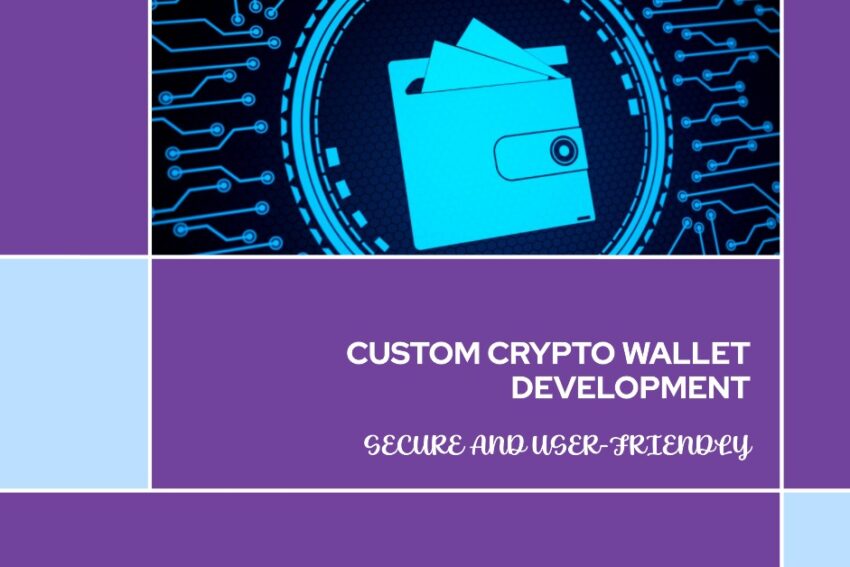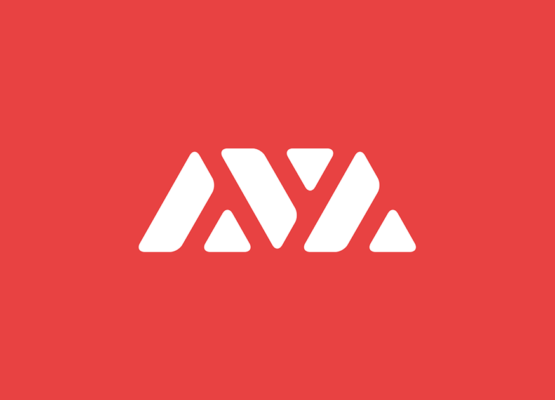In this ever-evolving world of cryptocurrencies, the crypto wallet stands out as a crucial gateway, enabling users to securely manage their digital assets. Blockchain Wallet Development plays a major role in shaping the future of digital finance. This blog helps you explore the importance of crypto wallets, investigate the diverse categories, and analyze the challenges and opportunities in the present market. Moreover, you get to discover the crucial factors responsible for the prosperous development of crypto wallets: building a team of highly skilled developers.
What are Crypto Wallets?
A crypto wallet is a digital tool that lets users store, manage, and transact various cryptocurrencies in a safe and easy way. It helps individuals to interact with their digital assets in a user-friendly way. As the crypto ecosystem grows, the demand for trustworthy and effective wallets rises, making them key elements of the blockchain landscape. If you are looking to improve your crypto experience, partner with a trustworthy Cryptocurrency Wallet Development Company for expert solutions.
Types of Crypto Wallets
-
Hardware Wallets:
The hacking risk is reduced by hardware wallets, which store private keys offline and provide enhanced security. But this also comes with the disadvantage of physical storage and access, which can be inconvenient.
-
Software Wallets:
These wallets are installed on devices as applications or programs. They can be accessed conveniently, but they are vulnerable to hacking and malware without proper security measures.
-
Web Wallets:
Web browsers give access to these wallets, which makes them flexible. But they also have online vulnerabilities, so users have to take security measures to safeguard their assets.
-
Mobile Wallets:
These wallets are designed for smartphones, which provides them on-the-go access. But they also face security risks because they rely on mobile devices.
-
Paper Wallets:
Records of bitcoin addresses and keys can be handwritten or printed. While they are not hackable because they are not online, they can be lost, damaged, or misplaced. Beginners or those considering long-term storage should be cautious about their suitability.”
-
Brain Wallets
A memorized passphrase or a mnemonic phrase is used to generate private keys. These are wallets that are offline and safe, but they are also unreliable and greatly risky. If the passphrase is forgotten or lost then the access to the funds is also lost. They are not suitable for anyone.
-
Multi-Signature Wallets:
To authorize a transaction, these wallets need multiple private keys. They improve security by sharing control among different devices and users. They can also be useful for escrow or shared purposes. However, they also need a more complicated setup and management process.
-
Custodial Wallets:
These are offered by third-party services or exchanges that hold and manage user’s private keys on their behalf. These are often integrated with exchange platforms and are user-friendly. Here users do not have complete control over their private keys, so they need to rely on the security measures of the custodian.
Challenges in Crypto Wallet Development
-
Security Concerns:
Sensitive information is stored by crypto wallets, which makes them appealing targets for cyber-attacks. Developers are required to apply robust security measures to safeguard user’s assets and personal data.
-
User Experience and Accessibility:
Balancing security and user-friendliness is a challenge. Developers have to build wallets that are suitable for both experienced and novice users without losing security features.
-
Interoperability Issues:
Various blockchain networks with different protocols make up the cryptocurrency ecosystem. Wallet developers face a huge challenge in making sure that numerous blockchains can work together.
-
Regulatory Compliance:
Cryptocurrency regulations vary across regions, which makes it difficult to create a solution that fits all. Developers must monitor regulatory changes and develop features that follow diverse legal frameworks.
-
Technological Evolution:
Developers involved in Crypto Wallet App Development need to learn and adapt continuously because blockchain technology changes rapidly. To build crypto wallets that are future-proof and innovative, they need to stay updated with technological developments.
Opportunities in Crypto Wallet Development
-
Growing Demand for Crypto Services:
Many people are adopting cryptocurrencies, which creates a huge demand for crypto wallets. Developers can take advantage of the opportunity to enter a growing market and satisfy the diverse needs of users.
-
Blockchain Integration:
Developers can integrate advanced features such as smart contracts, DeFi capabilities, and NFT support into crypto wallets as blockchain technology becomes more mature, improving their functionality. These features let crypto wallets act as Smart contract wallets that can execute complex transactions and interact with other smart contracts on the blockchain.
-
Partnerships and Collaborations:
By partnering with different blockchain platforms, wallet developers can improve their crypto wallets with more features and functions. This is an innovative approach that uses the strength of various platforms.
-
User Education and Engagement:
More people can adopt cryptocurrency if they learn about its benefits and how to adequately use wallets. Developers have a chance to create educational resources and intuitive interfaces that help users, contributing to the vast adoption of Wallet Development Solutions.
-
Customization and Personalization:
Customizable features in wallets can give users a personalized experience. Developers can take advantage of this opportunity to improve user engagement and satisfaction by adding personalization features.
Benefits of Hiring Top-Tier Developers
-
Quality:
High-quality code and a polished end product are delivered by top-tier developers who have experience and expertise. A reliable crypto wallet that is free of critical issues is ensured by coding best practices and rigorous testing.
-
Security:
The crypto space needs the highest level of security to protect user’s digital assets from possible dangers. By enforcing robust security measures, top-tier developers who are skilled in cryptography and cybersecurity create wallets that have a strong defense against unauthorized access and hacking attempts.
-
Scalability:
Scalability is important for wallet development as the crypto market grows. By designing wallets with scalability in mind, top-tier developers ensure smooth performance even with higher user activity.
-
Innovation:
Top-tier developers create innovative solutions that introduce cutting-edge features to the crypto wallet. These features boost the user experience and differentiate the wallet from the competition. Top-tier developers also keep up with industry trends and use the latest technologies to make the wallet future-proof.
-
Customer Satisfaction:
With intuitive features and a user-friendly interface, top-tier developers create a crypto wallet that pleases the customers. They focus on user experience, which creates trust and loyalty among the user base.
Criteria and Process of Hiring Top-Tier Developers:
-
Define Project Scope, Requirements, and Budget:
State the goals, features, and operations of the crypto wallet. Establish a realistic budget, taking into account development costs, security measures, and possible future updates.
-
Identify Target Audience and User Personas:
Discover the needs and preferences of the target audience. Create user profiles to guide developers in customizing the wallet to meet user expectations.
-
Choose Crypto Wallet Type and Platform:
Determine the wallet type (e.g., hardware, software, mobile) based on user requirements. Opt for platforms (iOS, Android, web) to enhance accessibility.
-
Specify Features and Functionalities:
Identify the key features (e.g., multi-signature support, two-factor authentication) that correspond to the wallet’s aim. Focus on functionalities that match user needs and market demands.
-
Determine Technical Stack and Architecture:
Pick the apt technology stack and architecture for the wallet’s creation. Ensure compatibility with blockchain networks and protocols.
-
Evaluate Portfolio and Experience:
Examine the portfolios of prospective developers for relevant crypto wallet projects. Seek developers with experience in blockchain, cryptography, and secure coding practices.
-
Conduct Technical Interviews and Tests:
Verify the technical skills of candidates through interviews and practical coding tests. Measure problem-solving skills and awareness of security protocols.
-
Negotiate Terms and Conditions:
Precisely define the terms of the contract, including project deadlines and milestones. Discuss payment methods and structures, ensuring agreement with both parties’ expectations.
Key Skills and Qualities in Top-Tier Developers
-
Proficiency in Programming Languages and Frameworks:
Top-tier developers must display proficiency in programming languages and frameworks crucial to crypto wallet development. This includes expertise in languages like C++, Java, and Python, along with proficiency in frameworks like React and Angular. A flexible skill set in these languages ensures developers can deal with the challenges of different blockchain platforms.
-
Familiarity with Blockchain and Cryptography Concepts:
A thorough knowledge of blockchain and cryptography is crucial for crypto wallet developers. Skill in concepts like hashing, encryption, digital signatures, and consensus mechanisms is mandatory. This knowledge forms the basis for creating secure and stable crypto wallets.
-
Experience in Developing and Integrating Various Crypto Wallets and APIs:
Top-tier developers should possess a lot of experience in developing and integrating various crypto wallets and APIs. This includes practical experience with popular platforms like Bitcoin, Ethereum, Binance, Coinbase, and others. The ability to effortlessly integrate these wallets and APIs into applications is important for a complete crypto wallet development approach.
-
Knowledge of Security and Compliance Standards:
Security is crucial in the crypto world. Developers should be proficient in security and compliance standards such as OWASP, GDPR, KYC, and AML. Conformity with these standards ensures that crypto wallets are not only functional but also meet the highest levels of security and regulatory compliance.
-
UI/UX Design and Implementation:
A top-tier crypto wallet developer should have the ability to design and implement user-friendly and responsive user interfaces and experiences. Creating an easy and attractive interface is essential for widespread user adoption. Developers with a keen eye for design and usability contribute greatly to the success of a crypto wallet.
-
Creativity and Problem-Solving Skills:
The problems in crypto wallet development are diverse. Developers must display creativity and strong problem-solving skills to overcome technical and business challenges. Whether it’s improving transaction speeds or dealing with scalability problems, top-tier developers should tackle challenges with creative solutions.
-
Communication and Collaboration Skills:
Effective communication and collaboration are important soft skills for crypto wallet developers. The ability to explain technical concepts to clients and team members, as well as collaborate successfully within a team, ensures that the development process is efficient and is as per the client’s expectations.
Major Tools and Platforms for Crypto Wallet Development
-
Development Tools and Environment
-
Visual Studio Code:
This light yet powerful code editor from Microsoft offers an unmatched development experience. With a rich ecosystem of extensions, it supports a variety of programming languages, making it an excellent choice for crypto wallet developers.
-
GitHub:
As a collaborative platform for version control, GitHub is important for managing and tracking changes in the source code. Its branching features support parallel development, promoting a smooth workflow within development teams.
-
Docker:
Containerization is crucial in ensuring consistent deployment across various environments. Docker simplifies this process, allowing developers to wrap applications and their dependencies into containers, ensuring portability and scalability.
-
Testing and Debugging
-
Postman:
Supporting API development and testing, Postman helps developers to simplify the testing process. Its user-friendly interface and automation capabilities make it an important tool for ensuring the dependability of crypto wallet functionalities.
-
Mocha and Jest:
Mocha and Jest are JavaScript testing frameworks that help in writing and running test cases. Mocha is flexible and supports multiple assertion libraries, while Jest, with its focus on simplicity, is an excellent choice for React-based applications frequently used in crypto wallet development.
-
Deployment and Hosting
-
AWS (Amazon Web Services):
Famous for its scalability and reliability, AWS offers a complete set of cloud computing services. From hosting to storage and database solutions, AWS provides the infrastructure essential for deploying and maintaining crypto wallets safely.
-
Azure:
Microsoft’s Azure platform offers a strong set of tools and services for deploying and managing applications. With a focus on integration and hybrid solutions, Azure is a great choice for developers seeking flexibility in their crypto wallet deployment strategies.
-
Heroku:
Suitable for startups and small to medium-sized projects. Heroku eases deployment with its platform-as-a-service (PaaS) model. Its simplicity and automation capabilities empower developers to focus on coding without getting distracted by infrastructure concerns.
-
Monitoring and Analytics
-
Google Analytics:
In the world of crypto wallets, user behavior analysis is essential for improving features and user experience. Google Analytics delivers valuable insights into user interactions, helping developers improve their applications based on real-world usage patterns.
-
New Relic:
New Relic delivers complete monitoring solutions, empowering developers to track the performance of their applications. With features like real-time analytics and error detection, it becomes a crucial tool for sustaining the optimal functionality of crypto wallets.
-
Sentry:
Sentry is a go-to solution for error tracking and debugging. It offers real-time error tracking, enabling developers to detect and fix issues quickly, ensuring a smooth user experience.
-
Marketing and Customer Support
-
Mailchimp:
Email marketing is a powerful tool for reaching and engaging with the crypto community. Mailchimp’s user-friendly platform allows developers to design and implement effective email campaigns, keeping users updated and interested.
-
Zendesk:
Providing a seamless customer support experience is essential in the crypto space. Zendesk offers a complete customer service platform, including ticketing, chat, and knowledge base features, ensuring quick and effective support.
-
Intercom:
Intercom allows personalized and real-time communication with users. Its chat and messaging features help crypto wallet developers communicate with users directly, gather feedback, and address concerns quickly.
To create cryptocurrency wallets that are secure and efficient, you may want to partner with professional Cryptocurrency Wallet Development Services providers. They can offer customized solutions that suit the specific needs of your projects, ensuring a trustworthy and solid cryptocurrency wallet implementation.
Conclusion
The art and science of crypto wallet development demands a blend of technical expertise, strategic thinking, and a commitment to meeting the evolving needs of users and the broader crypto ecosystem. When you start this work, you need to think about everything, from who is on your team to what tools you use. This will help you make crypto wallets that are safe, new, and good for users. These crypto wallets will last long in the fast-changing world. Well, are you looking to Hire Crypto Wallet Developers to start on this journey? Consider partnering with Codezeros, who can provide you with expert crypto wallet developers to ensure a seamless and secure development process that matches the dynamic landscape of the cryptocurrency industry.




